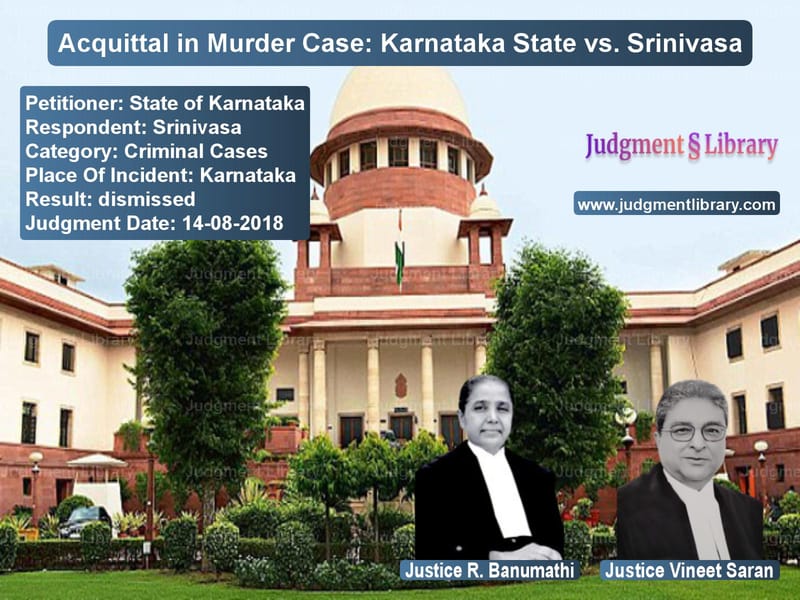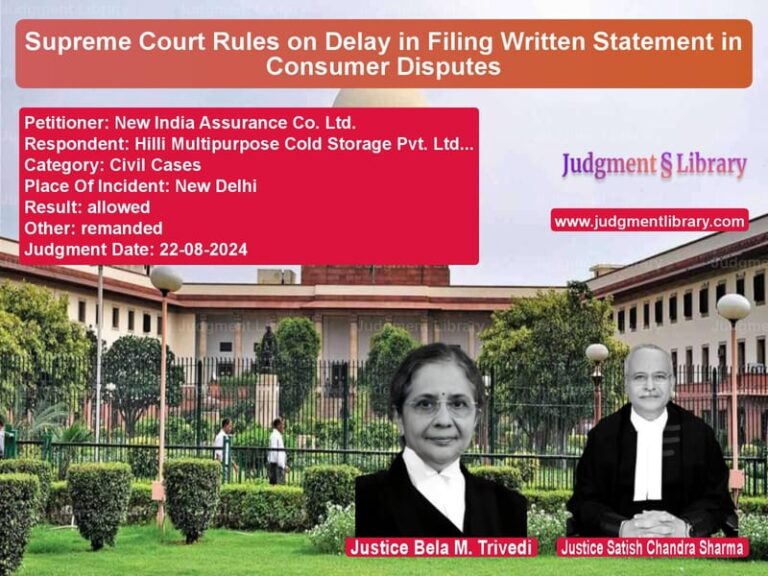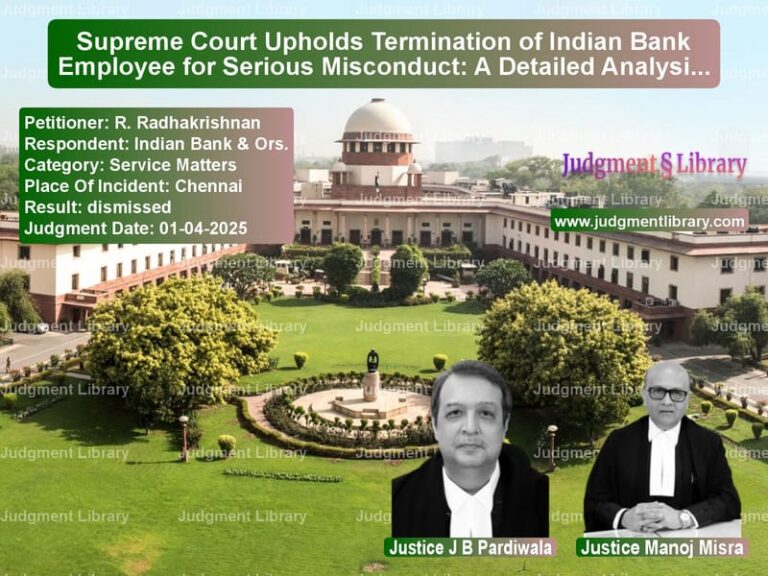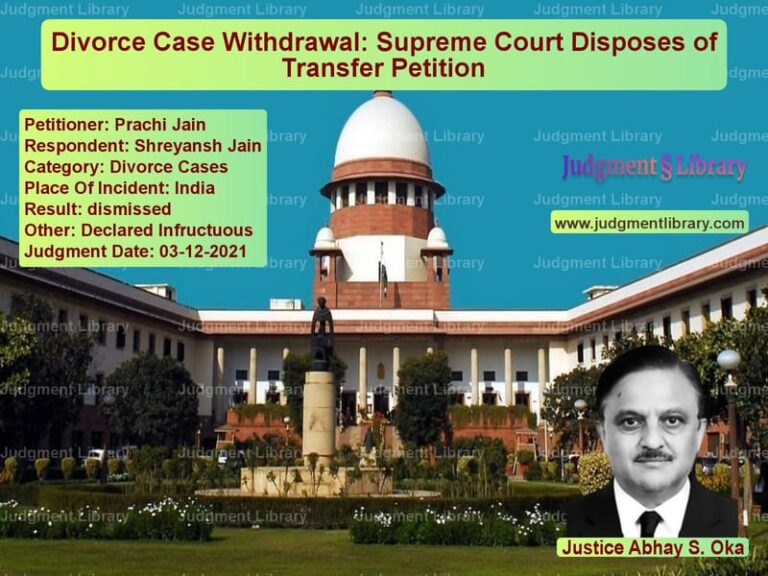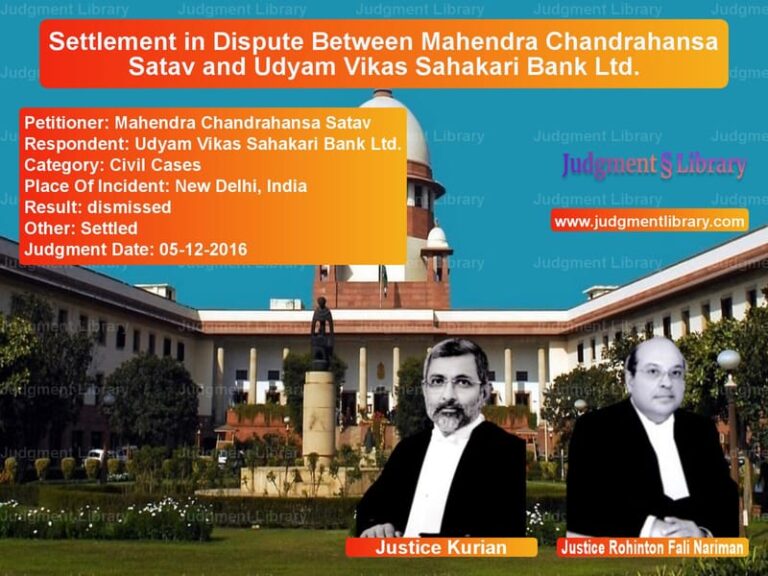Acquittal in Murder Case: Karnataka State vs. Srinivasa
The case of State of Karnataka vs. Srinivasa revolved around the tragic death of Rajashree, allegedly at the hands of her husband, Srinivasa. The prosecution accused the respondent of strangulating his wife due to an illicit relationship with a second accused, Padmavathi. The case was initially decided by the trial court, which convicted Srinivasa under Section 302 IPC and sentenced him to life imprisonment.
The trial court based its decision on medical evidence presented by PW-7 and testimony from the deceased’s parents (PW-8 and PW-9). They testified that the respondent and Padmavathi had an illicit relationship, which led to frequent quarrels between him and the deceased. On the day of the incident, Rajashree was found hanging with a telephone cable wire. The prosecution claimed that she had been strangulated before being hung to stage a suicide.
Arguments Presented
Prosecution’s Argument
- The prosecution argued that Srinivasa had a clear motive to commit the crime due to his extramarital relationship.
- Medical evidence suggested that the ligature marks on the deceased’s neck indicated homicidal strangulation.
- Parents of the deceased confirmed ongoing marital discord due to the accused’s extramarital affair.
- The accused had the opportunity, as the incident took place in his residence.
Respondent’s Defense
- The defense relied on the testimony of PW-7, the medical examiner, who stated during cross-examination that it could be a case of suicide.
- The ligature marks were not conclusive to establish strangulation beyond doubt.
- The post-mortem report did not conclusively support the prosecution’s claim of homicidal death.
- The defense contended that the accused was being falsely implicated due to family disputes.
High Court’s Ruling
The High Court acquitted the accused based primarily on the medical evidence provided by PW-7. The court observed:
“The medical evidence does not conclusively establish that it is a case of homicidal death.”
Since the doctor opined that suicide could not be ruled out, the court ruled in favor of giving the accused the benefit of doubt. It further noted that once a plausible alternative explanation was provided by the defense, the burden lay on the prosecution to establish guilt beyond reasonable doubt. As the High Court found no compelling evidence to establish homicide, it overturned the conviction.
Supreme Court Verdict
The Supreme Court upheld the High Court’s ruling, stating:
“When the doctor has given an opinion that suicide cannot be ruled out and the death of the deceased could have been due to suicide which was accepted by the High Court; when the High Court has a view which is a plausible view, we find no good ground to take a different view.”
With this observation, the Supreme Court dismissed the appeal by the State of Karnataka, affirming the acquittal of the accused.
Conclusion
The judgment highlights the importance of medical evidence in criminal cases and underscores the principle that benefit of doubt must be extended to the accused when conclusive evidence is lacking. Despite the circumstantial evidence against Srinivasa, the Supreme Court found no compelling reason to interfere with the High Court’s acquittal, emphasizing the requirement for proof beyond reasonable doubt in criminal cases.
Petitioner Name: State of Karnataka.Respondent Name: Srinivasa.Judgment By: Justice R. Banumathi, Justice Vineet Saran.Place Of Incident: Karnataka.Judgment Date: 14-08-2018.
Don’t miss out on the full details! Download the complete judgment in PDF format below and gain valuable insights instantly!
Download Judgment: State of Karnataka vs Srinivasa Supreme Court of India Judgment Dated 14-08-2018.pdf
Direct Downlaod Judgment: Direct downlaod this Judgment
See all petitions in Murder Cases
See all petitions in Judgment by R. Banumathi
See all petitions in Judgment by Vineet Saran
See all petitions in dismissed
See all petitions in supreme court of India judgments August 2018
See all petitions in 2018 judgments
See all posts in Criminal Cases Category
See all allowed petitions in Criminal Cases Category
See all Dismissed petitions in Criminal Cases Category
See all partially allowed petitions in Criminal Cases Category

